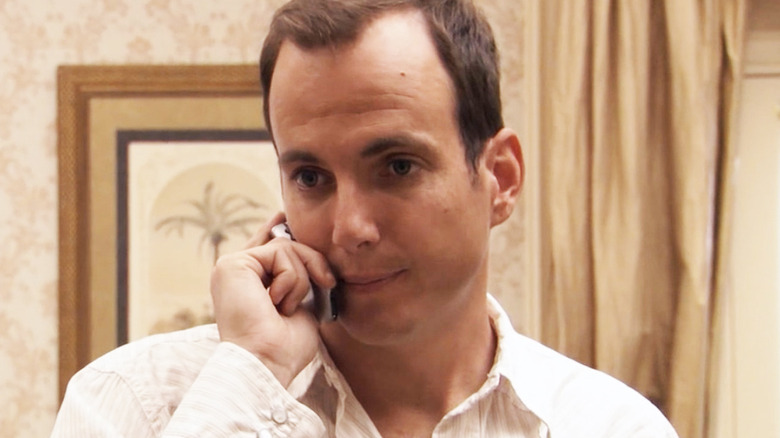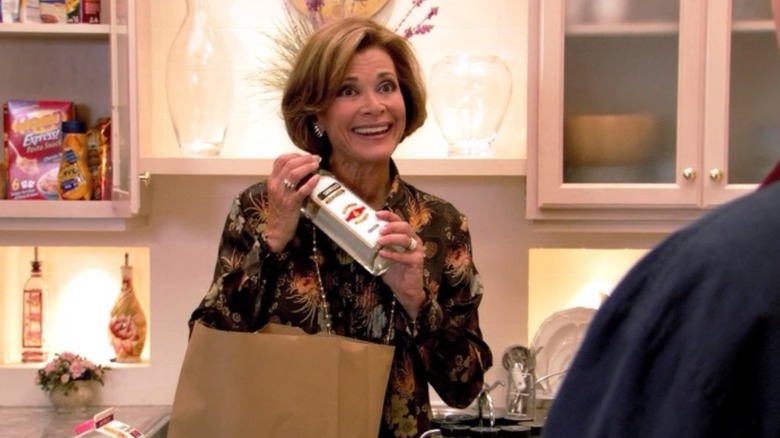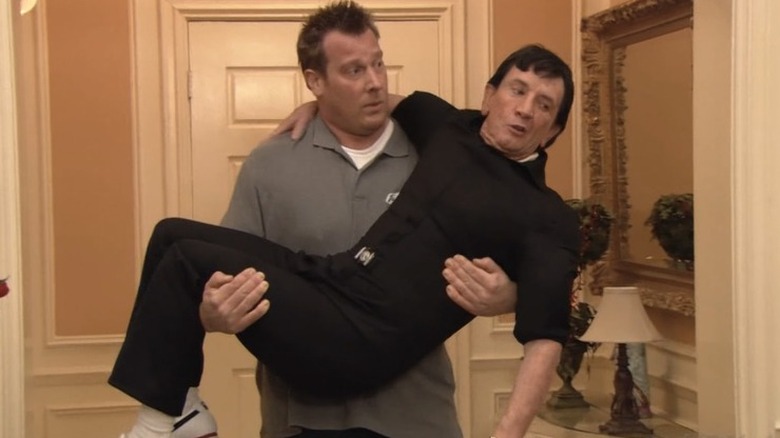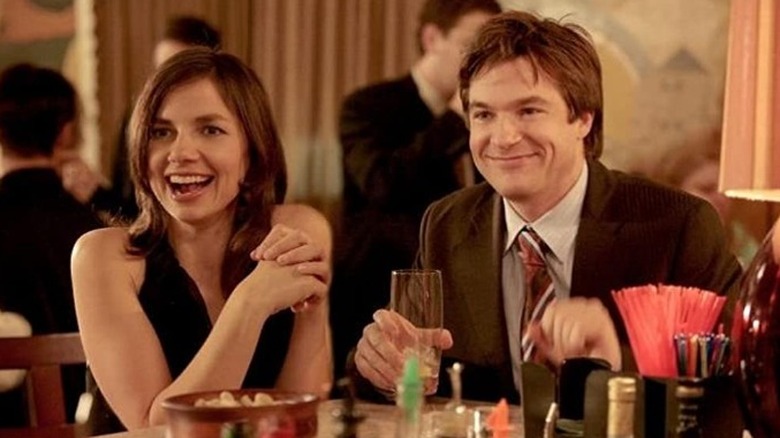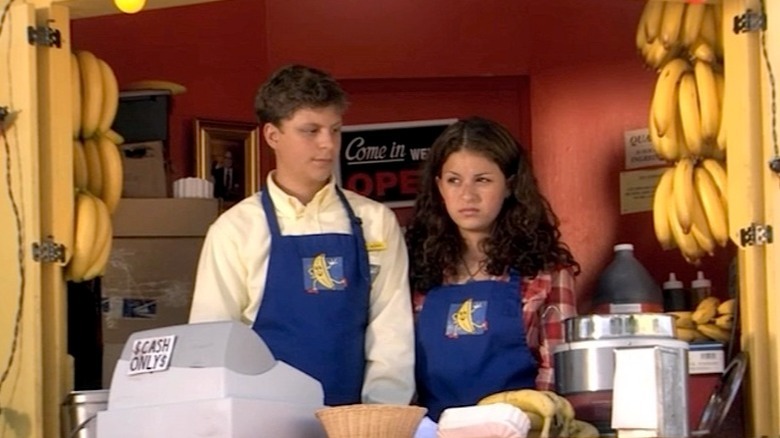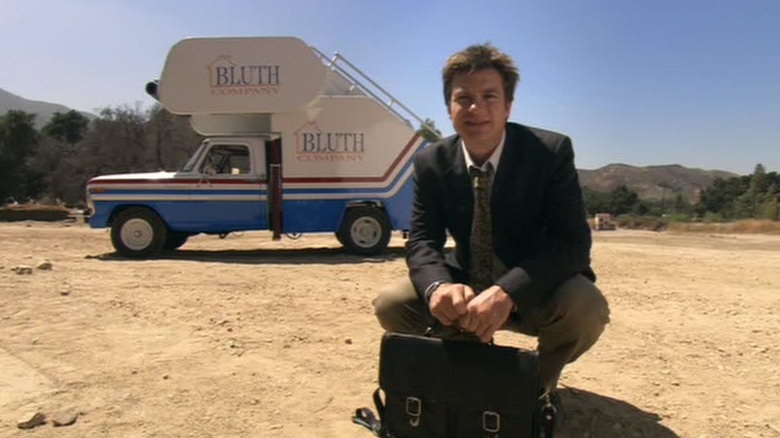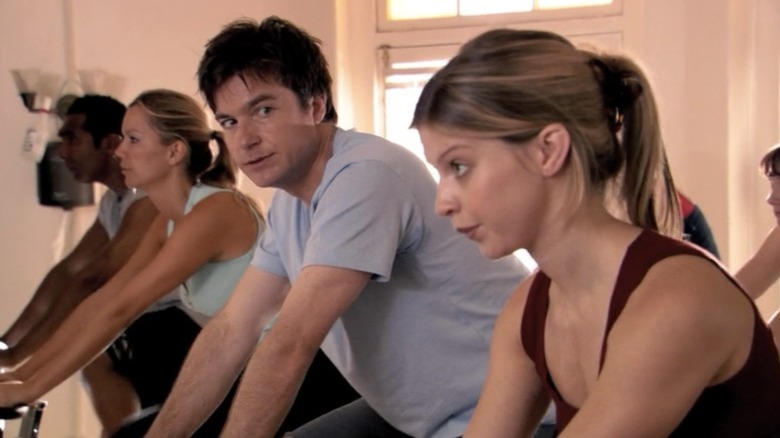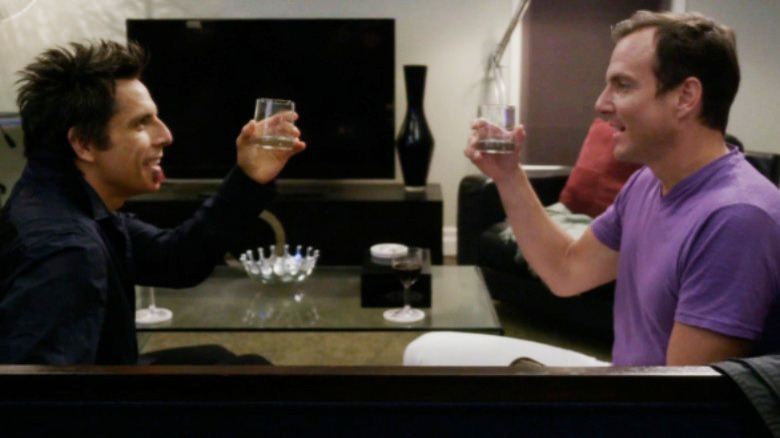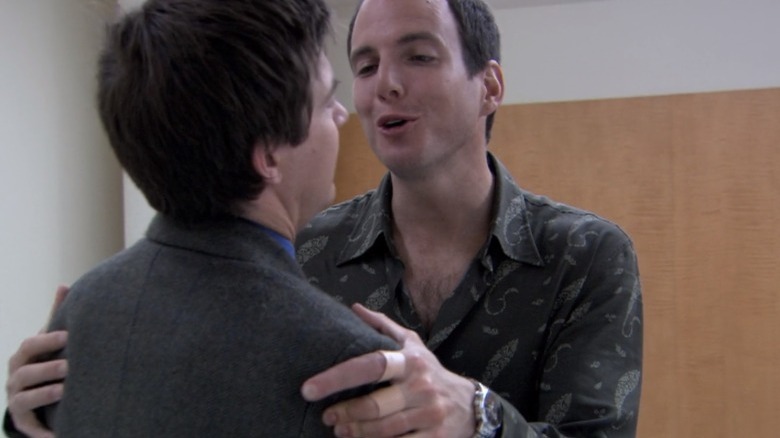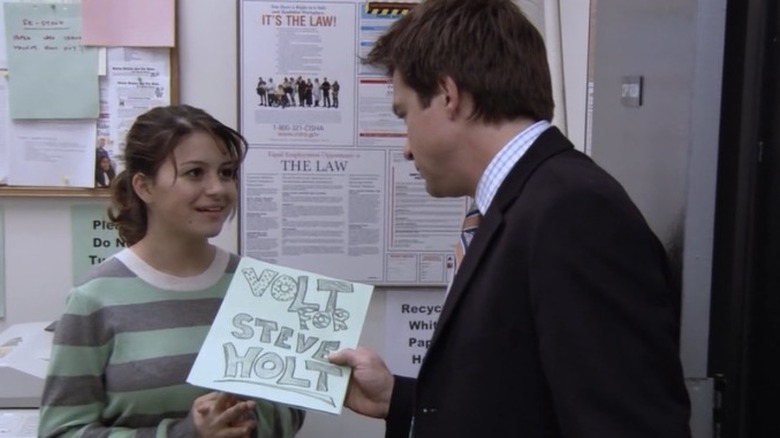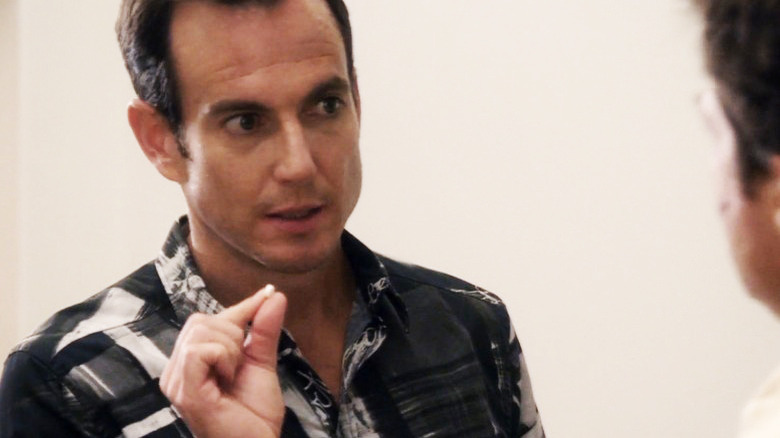The 10 Most Underrated Episodes Of Arrested Development
When "Arrested Development" first aired, it epitomized underrated television. Unceremoniously ending with its truncated, 13-episode third season, the show never got the contemporaneous credit it deserved. While critics at the time were positively beaming with praise — with The New York Times even remarking the premiere episodes proved "sharply satirical" — it lasted a while before the powers that be relegated "Arrested Development" to the realm of forgotten cult classics. That is, of course, until Netflix picked up the series in 2011, premiering a fourth season in 2013, a decade after the first.
In the time since, "Arrested Development" achieved almost mythic status, ranking 37 on Rolling Stone's list of the 100 best television comedy series ever. That's right. The little sitcom that could is sandwiched between "Hill Street Blues" and "I Love Lucy," as good an indication as any that creator Mitchell Hurwitz achieved something special here. While the first three seasons are remarkably accomplished, the quality does dip with the Netflix revival. Through the original run, though, there isn't a weak episode among the batch. Still, a few real gems were unfortunately overshadowed, and here, we'll be looking at the 10 most underrated episodes of "Arrested Development."
My Mother, the Car (Season 1, Episode 7)
The late Jessica Walter's Lucille Bluth is the show's best asset. A standout personality, it's remarkable in retrospect to see just how sparingly Lucille was utilized. Often, Lucille existed along the periphery, contributing to and augmenting the chaos rather than being the singular cause of it (at least until the ostensible series finale). In "My Mother, the Car," Sole Responsible Bluth Michael (Jason Bateman) is urging his mother to curb her spending while simultaneously endeavoring to throw a surprise birthday dinner for her. Problem is, every time Michael and Lucille arrive at the restaurant, the dining room is empty — everyone keeps forgetting.
Beyond the hilarious visual gag of Lucille repeatedly throwing open doors to find no one there, there's an indelible bit of Lucille Bluth mayhem. Here, she exploits Michael's concussion following a car accident to convince him he was responsible. Every time he gets a hint of the truth, she thwacks him on the head. It's grim stuff in any other context, but here, Walter and Bateman sell the quasi "Psycho" homage well. A mother simply wants to feel needed by her son, and "My Mother, the Car" exploits it to comic perfection. Plus, the title is a reference to a real NBC sitcom from the 1960s where Jerry Van Dyke's mother is reincarnated as a car. That alone is a win.
Ready, Aim, Marry Me (Season 2, Episode 10)
Jessica Walter's Lucille Bluth is unmatched, but Liza Minnelli's Lucille Austero comes close. The antagonism the two share shifts from malicious, capitalistic power plays to saccharine friendship. The comedic dynamism is incredible, and the two have remarkable chemistry. Where "Ready, Aim, Marry Me" earns its underrated status is merely its role in one of Season 2's ongoing storylines, namely the shifting power dynamics of who owns a majority share of the Bluth company.
Lucille Austero, for her part, has been purchasing shares, though rather than looking to assume control, she's merely been looking to support the family. It's a classic misunderstanding, playing out during a protracted comedy of errors as the cast writ large converges at a romantic spa package at a nearby hotel. Everyone fights for no reason, and while the stakes are quickly reset at the episode's end, it's a chaotic jamboree packed with more laughs than most network sitcoms. While it can be difficult to appreciate as a standalone, within the larger context of the season, it's a definite high point.
Family Ties (Season 3, Episode 11)
"Family Ties" brings in star Jason Bateman's sister, Justine Bateman, for a fun cameo in an episode titled after Justine's famous role on the NBC sitcom of the same name. Here, Michael is trying to track down a woman he believes to be Nellie Bluth, his lost sister whom he presumes the family is planning to pin their many, many (many) crimes on. He finally finds her, meeting Justine Bateman's Nellie at a hotel, not realizing that she isn't his sister, she's a sex worker.
It rarely gets funnier than Michael bringing Nellie into the office, urging his associates to "take advantage of her expertise," believing her to be both his sister and new coworker. Nellie proves to be a boon for the Bluth company, draining her account to upgrade hardware and pay other employees, and even gets to remark that'd she never work for Michael; after all, she made over $300,000 the year before. She's also not his sister — on-screen, that is. The casting is somewhat gimmicky, but both Batemans have a tender, funny chemistry. Coming so close to the finale, it's easy to overlook just how contained and sweet "Family Ties" is.
Top Banana (Season 1, Episode 2)
The premiere of "Arrested Development" is so accomplished, "Top Banana" is at an innate disadvantage following it. Yet, where the pilot laid the foundation for the show, highlighting its meta-awareness, subversive structure, and larger-than-life personalities, "Top Banana" has the distinct honor of introducing several running gags that would later be revisited throughout the show's run.
The likes of G.O.B's (Will Arnett) suit doves, his lighter fluid, and the prison guard's shouts of "No touching" are introduced here. Other gags, such as "light treason" are presented, inspiring memes that would come to define an entire election cycle years later. Plus, the whole thrust of the episode is remarkably simple yet deliciously effective with the final reveal. From the start, George Sr. (Jeffrey Tambor) tells Michael, "There's always money in the banana stand." Michael believed this to be metaphorical until the stand burns down. When Michael tells his father the news, George Sr. loses it. $250,000 had been hidden in the walls, and like the stand, it's now gone up in smoke.
The Cabin Show (Season 3, Episode 1)
"Arrested Development" never prevaricates when it comes to skewering the uber-rich. Even golden boy Michael Bluth isn't immune. While he's the most sensible of the bunch, and Jason Bateman plays him with that trademark detached dry wit, he has plenty of faults of his own, namely his absolutely horrendous efforts at connecting with his son, George Michael (Michael Cera). Mistaking George Michael's quasi-incestuous guilt after a kiss with his cousin as a depressive fugue on account of missing his dad, Michael decides to take George Michael on a camping trip to the family cabin.
The trip keeps getting derailed, with both Michael and George Michael recurrently wanting and not wanting to go. As the episode wraps, they get to spend their time together, only for George Sr. to hoist the cabin on a truck bed and drive off with them. It's outrageous and ridiculous, but like some of the show's best, it allows the entire family to converge in a unique locale for mayhem and laughs. It isn't quite as tight as the likes of "Amigos," but "The Cabin Show" was still a remarkable debut for the show's third, and at the time, last season.
Public Relations (Season 1, Episode 11)
"Arrested Development" is always at its best when the entire family is involved. Sure, that's common in most ensemble comedies, but "Arrested Development" benefits more than most, largely on account of just how inimitable (and funny) the collective chemistry is. Ensemble comedies often have a weak player or two — the "Modern Family" writers, for instance, never quite figured out how to make Alex work — but the "Arrested Development" cast is universally excellent. "Public Relations" is a low-key affair, but in bringing the whole Bluth group together to juxtapose their inanity against a normal world, it excels.
Michael hires Jill Ritchie's Jessie Bowers publicist to improve the family's public image after George Michael is rejected from the Milford School. These include embellishing George Sr.'s conversion to Judaism and keeping Buster (Tony Hale) hidden completely from view; it should be easy given his Milford alumni status, a school that suggests children be neither seen nor heard. While it never quite reaches the zany heights it seems to be aiming for, rendering it a great, if not classic episode, it does at least introduce Carl Weathers, serious cheapskate, as himself and has Lucille ordering the "Ike and Tina Tuna" at a restaurant. She doesn't understand the question and she won't respond to it.
A New Attitude (Season 4, Episode 11)
G.O.B. carried the show's fourth season. A longstanding side player, G.O.B.'s early caricature was never enough to sustain an entire episode. Yet, in the wildly uneven Season 4 — and, yes, that includes the remixed version — G.O.B emerges as one of the sole players capable of sustaining an entire episode by himself. While his first solo outing in "Colony Collapse" was one of the series' best ever, "A New Attitude" does endeavor to bring a few more Bluths into the fold. G.O.B.'s trademark chaos is lost some with the expanded scope, but it remains a delightful reminder of just how funny "Arrested Development" can be.
G.O.B. is planning revenge on Tony Wonder (Ben Stiller), a rival magician who curiously had a baby with George Michael's ex, Ann Veal (Mae Whitman). In effect, G.O.B. is fronting as a Christian magician, and Tony is fronting as a gay one. They both endeavor to sabotage the other, trapping them in compromising scenarios that would both prove one is gay and the other is not. It's not nearly as tasteless as it sounds, however, and while it isn't quite as funny as "Colony Collapse," it is a remarkable achievement in its own right. Plus, G.O.B. might be dating Julie Bowen (he isn't).
Righteous Brothers (Season 2, Episode 18)
If "Arrested Development" had a slump before its Netflix revival, it was undoubtedly the latter part of Season 2 and the early goings of Season 3. The Mr. F material was never the strongest, and while most of the show's best jokes came from its genuine commitment to corporate sabotage and white-collar crime, Season 2 ended by leaning a little too heavily into the twists and surprises. Resultantly, "Righteous Brothers" isn't an especially strong season finale, but removed from the conventions and expectations therein, it remains an incredibly funny romp.
George Sr. is still hiding in the attic, having fled from prison, and Michael is still worried about Judy Greer's Kitty and what she might know. The Maeby (Alia Shawkat) and George Michael material aren't especially strong, trading in the same cousin-love jokes that had run somewhat dry by that point, but the overarching story allows for plenty of absurd comedy. George Sr.'s twin brother is mistakenly arrested after the police mistake him for George, Jason Bateman and Will Arnett get to trade blows as squabbling brothers, and the "Charlie Brown" music returns for a fitting conclusion. It's not an especially strong season finale, though had it come elsewhere in the season, it'd be independently strong, another great outing for one of television comedy's best.
The Immaculate Election (Season 2, Episode 14)
"The Immaculate Election" is weird. George Michael is convinced by his girlfriend Ann to run for student body president. Earlier in the episode, the audience sees a homemade video of George Michael in the garage, waving sticks around pretending to be a Jedi with a lightsaber. It's the show's Checkov's Gun, and audiences know it's going to come back later. And come back later it does. After some double-crossings and betrayals, G.O.B. ends up managing George Michael's campaign while Ann helps rival Steve Holt (Justin Grant Wade).
Ann produces Steve's campaign video, a bit of Christian propaganda that has Steve finding Jesus on account of never knowing his real father (spoiler: it's G.O.B.). George Michael's campaign video, conversely, is a reel mocking Steve for, uh, not having a father, followed by a splice of his garage lightsaber skills. It's hilarious — as funny as anything the show has done before — even if the incest humor starts to overwhelm the more grounded comedy. Yes, Maeby has a crush on Steve, who might be her cousin, while also kissing George Michael, who might also be her cousin. Ignore that, and "The Immaculate Election" is a black comedy win.
Forget-Me-Now (Season 3, Episode 3)
Where "The Immaculate Election" was weird, "Forget-Me-Now" trades in dark, uncomfortable humor. While the setup is pretty conventional, again returning to the saga of Rita (Charlize Theron) and the mysterious Mr. F, the climactic shift into "forget-me-now" territory is remarkably chaotic and unhinged. After Buster knocks Rita out, mistaking her seal backpack as the real thing (in the prior season, a seal severed his hand), G.O.B., Tobias, Lucille, and Lindsay opt to toss her body out of the cabin car, rather than helping her. After all, as Lucille says, they can't tell Michael: "He won't hear about the good stuff; he'll just hear about the beating."
This, in turn, prompts G.O.B. to suggest the use of his magician's "forgettiness" pills, otherwise known as, yes, Rohypnol. The reveals are grim, namely Jessica Walters' response to the swelling chaos, including a suggestion that G.O.B. had been drugging her for quite some time as well. While it's incongruous with most of the series (the Bluths are bad, but never quite this bad), it's a remarkable standalone, an episode abounding with stellar character work and some of the best acting the cast has ever put in. It's not quite a classic, but it's far from forgettable.
